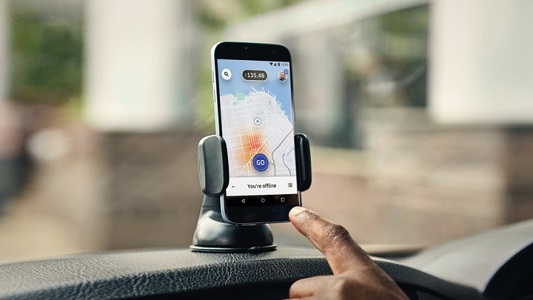On Tuesday, drivers attached to the different ride-hailing services in Kampala expressed their dissatisfaction with the prevailing situation in the industry, issuing a 7-day ultimatum.
Under their umbrella body, the Smart Online Drivers Association (SODA), the drivers listed a number of issues they wanted to be resolved, key among them “unfair” pricing of trips, considering the current price tags for gas in the city.
Drivers want the prices per kilometer increased to match the current petrol costs. Currently Uber charges a minimum fare of Shs4000 with a commission rate of 25 percent while Taxify charges Shs4500 for a 15% commission rate.
Addressing the media in Kampala, SODA leader Musa Kabunga said that the rates set by the ride-hailing services are low, unfair and exploitative in nature.
Responding to the matter in an email exchange with SautiTech, Janet Kemboi, the head of Uber communications in East Africa, said that, however much they acknowledge the current tough situation the drivers are going through, increasing transport fees at this point would badly hurt business for both the company and the drivers.
“We constantly monitor fares, examine consumer price sensitivities and driver economics in Uganda to ensure that fares are correctly priced so that riders continue to take trips and drivers have access to more fare-paying passengers,” she said.
“If fares were to increase, then riders may take fewer trips which will ultimately lead to lower earnings.”
Other demands put forward by drivers attached to ride-hailing services, include the introduction of pick-up fares for long distances, rolling out a compensation system in case of undercalculation by the system and introduction of a cancelation fee.
Kemboi spoke about every issue in an email response and below we publish it (in italics) as sent to us:
We respect driver-partners as valuable partners with a voice and a choice and we want driver-partners to feel they can talk to us about anything at any time.
However, drivers are diverse in how they use the Uber app and it would be difficult for an individual or group to holistically represent every driver on the app.
We will continue to engage with our driver community via our established channels which all drivers have agreed to when signing up with Uber.
We actively engage with driver-partners through 1:1’s, consistent focus groups and roundtables, and will continue to do so.
We are committed to our partnership with drivers and we are working hard every day to ensure their businesses continue to succeed.
We’d like to clarify some points that have been raised:
Earnings: We constantly monitor fares, examine consumer price sensitivities and driver economics in Uganda to ensure that fares are correctly priced so that riders continue to take trips and drivers have access to more fare paying passengers.
If fares were to increase, then riders may take fewer trips which will ultimately lead to lower earnings
Cancellation Fee: Cancellations can be frustrating for riders and driver-partners alike, which is why we have a cancellation fee in place already to ensure that drivers are fairly compensated for their time when committing to a trip.
If a rider cancels after 5 minutes, the cancellation fee will automatically be charged to their next successfully completed trip.
Commitment to safety at no additional cost: We have introduced injury protection and emergency assistance for driver-partners to help keep drivers operating costs down so drivers’ earnings can go further.
Protests by drivers in the ride-hailing service, though not common in Kampala, continue to happen everywhere in the world.
In some countries like Kenya, the government has had to intervene by introducing laws to regulate the industry and facilitate fair play.
Related:
Ride-hailing scams: How drivers/riders game the system to charge you more
Africa’s first women-only ride-hailing service launched

